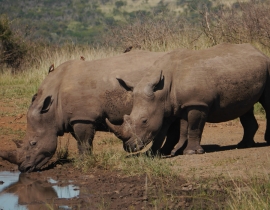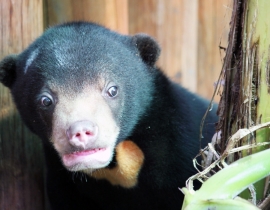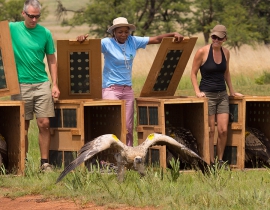Posted April 27, 2015 in All
Rhino poaching in South Africa has reached crisis point. Last year 1,215 rhinos were poached across the country – that’s one every eight hours. If the killing continues at this rate, rhino deaths could overtake births in 2016-2018, meaning in the very near future rhinos could become extinct.
The international illegal trade in rhino horn is mainly driving the increase in poaching. Although rhino horn has no scientific medical benefits, ground horn is still used to treat a wide range of conditions from cancer to hangovers. And now, due to its high value, preserved rhino horn has become a status symbol.

Protecting black and white rhino populations living in Hluhluwe-iMfolozi Park in the KwaZulu-Natal province of South Africa, is a top priority for Save the Rhino. Ground-based and aerial surveillance patrols are collecting valuable rhino-sighting data which increases conservationists’ knowledge of the park’s rhino populations. At the sametime, anti-poaching patrols are carrying out law enforcement activities to combat further rhino poaching losses and are working hard to bring more successful prosecutions and convictions of the criminals involved.
Colchester Zoo’s Action for the Wild charity donated £5,309 to the conservation project in April, continuing its ongoing support of Save the Rhino. This will go towards essential equipment such as handcuff pouches, camouflage overalls and night-vision equipment, which will help the patrols to monitor and protect the park in the hope of combating the poaching crisis and saving future generations of rhinos.
Article kindly written by © Sarah Jones Beer



